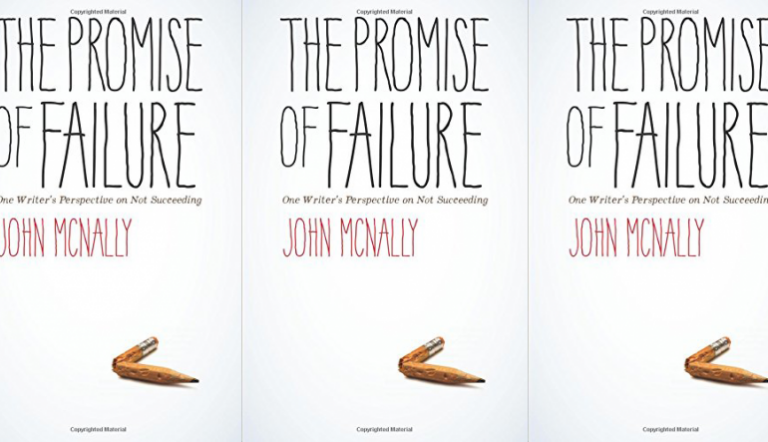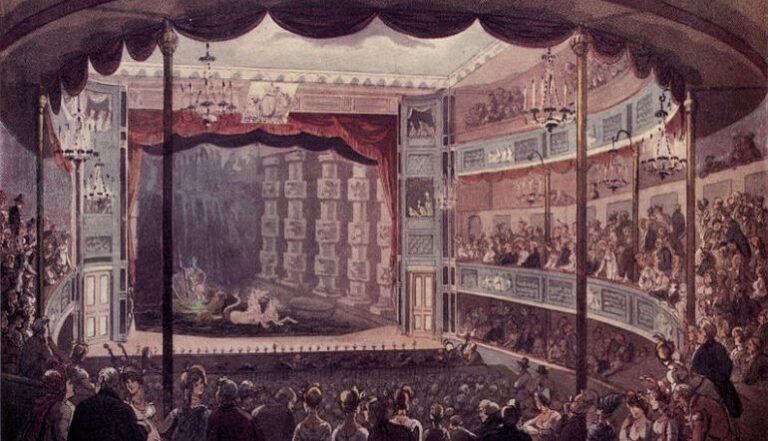The Best Story I Read in a Lit Mag This Week: “The Disappearance of Herman Grimes” by Michael Shou-Yung Shum
It’s not often that I cry a little while reading a short story. I’ve been known to cry at badly written episodes of Grey’s Anatomy, at the emotional conclusion of certain novels, and in the presence of pretty much any crying person. (My tear ducts are sympathetic—what can I say?) But short stories, while often moving, don’t usually make me weepy. I’m not sure why this is—I honestly haven’t thought much about it—but all of this is to say: when a story makes me tear up, I notice.
So earlier this week, when I cracked open the most recent edition of Midwestern Gothic and cried at “The Disappearance of Herman Grimes” by Michael Shou-Yung Shum, I wanted to figure out why.
I’m not going to write about the passage that made me so emotional, in part to avoid spoiling the end of the story—but also, I’d argue, because the reason it produces such a response happens much earlier on. It’s the result of an accumulation, not one specific moment. Just as a killer ending isn’t always about what’s on the last page so much as is about the shape of the narrative before it, the Paragraph That Made Me Cry wouldn’t have made me cry unless Shum had taken the time to create such a lovely and unassuming character in Herman Grimes.
To start, Herman is about as sympathetic as characters can get. He lives in the tiny town of Ardsmore, Oklaholma, and owns a Crystal’s. His wife not two months dead, Herman is faced with the threat of his fast food restaurant being disenfranchised, ostensibly on the grounds of a violated health code, but more likely due to a poor sales performance over the last year. They have a month to prepare for an inspection, and Joe, the restaurant’s general manager, suggests really trying to fix the place up so it’ll pass. With the inspection date looming, Herman’s dreams of his dead wife increase in their potency and frequency, until Herman’s heartbreak becomes so palpable it hurts.
Herman never reads as pathetic, despite all that’s stacked against him, which is the key to the success of this story. He’s shy and unassuming; simple and sincere. Life has been unkind to him in the way life often is: lovers die, businesses go under, the characters that populate your youth change and turn into desiccated versions of the people you remember. Shum shows compassion in writing Herman—it would have been easy to make him a pathetic man whose one goal to is to own a shitty fast food restaurant, in a tiny town where no self-respecting, interesting person would chose to live, mourning the death of an unremarkable woman whose depression claimed her life as much as her cancer.
Instead, Herman reads as an earnest man in agony. His decision to own the restaurant in Ardsmore is shown as a decision born of practicality. His wife Greta’s death shapes his days. Herman has what Shum describes as “episodes,” during otherwise seemingly unremarkable moments, when Herman’s longing for his wife overwhelms him to the point that he can’t function.
He breaks down in front of Joe while taking inventory, biting his knuckle so hard that he breaks the skin. He has episodes while driving to the grocery and talking on the phone at work. He can’t sleep at night for the guilt. He is a man in real pain—someone for whom getting through the days (and the nights) is a chore that seems to expend nearly all of his energy. He’s not shown clutching her picture and sobbing. He simply remembers that she used to exist and becomes overwhelmed. I could feel his exhaustion.
But it’s not only that he’s lost a woman he loved; Herman is lonely. Grieving a loved one is isolating, not only because you’re mourning a unique relationship, the intimacy of which no one else could ever know or understand, but also because the non-grieving can’t relate and often treat grief as a peculiar and catching disease. His teenage employees avoid him. His general manager, Joe, sees grief as a location from which Herman can be removed, and is someone “who had seemingly taken it upon himself to rehabilitate Herman’s psyche through sheer force of aphorism.”
Herman has lost his partner, and along with it, he’s lost access to the rest of his community. His family isn’t mentioned, so it’s assumed he doesn’t have one. He can’t relate to Joe or the other employees. Shum successfully shows Herman as someone almost cornered by grief and the loneliness that accompanies it without making him into a spectacle.
By the time we get to the end of the story, Herman feels fleshed out, a real person dealing with a common yet devastating problem. Shum prevents Herman’s grief from reading as melodramatic, and treats the character with compassion. Even though it isn’t glamorous, we become invested in Herman’s life and the fate of his fast food restaurant. I wanted so much for Herman that I almost didn’t know where to start: relief from his pain, intimacy with another character, a moment of kindness and generosity from an unexpected place, or perhaps the opportunity to redo his life with Greta—not so that they could escape Ardsmore, but so that they could keep each other young for longer. And wanting all of that for this character, all at once, made me cry.
So check out “The Disappearance of Herman Grimes.” Like I said, it’s not often that I have a tearful reaction to a story, but to this one I did. Now it’s time to find out: are you guys big cry babies like I am?
“The Best Story I Read in a Lit Mag This Week” is a series focused on—you guessed it—great pieces of fiction in recent issues of literary journals. Have a journal you think I should check out? Tell me about it in the comments or shoot me an email at lymreese at gmail dot com.


